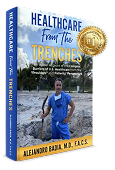Not all rotator cuff tears require surgery, especially if the tear is partial or mild. Many athletes benefit from a non-surgical approach that includes physical therapy, activity modification, and anti-inflammatory medications. In some cases, regenerative treatments like platelet-rich plasma (PRP) injections may also be considered to encourage healing.
That said, more severe tears—especially those that affect strength and range of motion—often do not heal on their own. For competitive athletes, the decision to pursue surgical repair often depends on the level of play, the demands of the sport, and how much the injury impacts performance.
If you’re unsure whether surgery is necessary for your rotator cuff injury, consulting a specialist at Badia Hand to Shoulder Center can help you understand your options and create a recovery plan tailored to your athletic goals.






